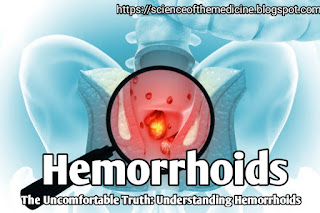Hemorrhoids are a common and often painful condition that affects millions of people worldwide. They occur when the veins in the rectum or anus become swollen or inflamed, leading to discomfort, itching, and bleeding. In this article, we'll explore the causes, symptoms, and treatment options for hemorrhoids.
What are Hemorrhoids?
Hemorrhoids are swollen or inflamed veins in the rectum or anus. They can be internal (inside the rectum) or external (under the skin around the anus). Hemorrhoids are often caused by:
- *Straining during bowel movements*: Constipation or diarrhea can put pressure on the veins in the rectum and anus.
- *Pregnancy*: The increased pressure on the veins during pregnancy can cause hemorrhoids.
- *Obesity*: Excess weight can put pressure on the veins in the rectum and anus.
- *Aging*: As we age, the veins in the rectum and anus can become weaker and more prone to swelling.
Symptoms of Hemorrhoids
The symptoms of hemorrhoids can vary depending on the type and severity, but common symptoms include:
- *Pain or discomfort*: Pain or discomfort in the rectum or anus, especially during bowel movements.
- *Itching or irritation*: Itching or irritation around the anus.
- *Bleeding*: Bright red blood on toilet paper or in the stool.
- *Swelling or lumps*: Swelling or lumps around the anus.
Treatment Options for Hemorrhoids
Treatment options for hemorrhoids depend on the severity and type of hemorrhoids. Common treatments include:
- *Lifestyle changes*: Making dietary changes, such as increasing fiber intake, and staying hydrated can help manage symptoms.
- *Over-the-counter medications*: Creams, ointments, or suppositories can help reduce pain and swelling.
- *Medical procedures*: Procedures like rubber band ligation or sclerotherapy can help shrink or remove hemorrhoids.
- *Surgery*: In severe cases, surgery may be necessary to remove hemorrhoids.
Prevention
Preventing hemorrhoids involves making lifestyle changes, such as:
- *Eating a high-fiber diet*: A diet rich in fruits, vegetables, and whole grains can help soften stool and reduce straining during bowel movements.
- *Staying hydrated*: Drinking plenty of water can help soften stool and promote regular bowel movements.
- *Avoiding straining*: Avoiding straining during bowel movements and taking regular breaks to stretch can help reduce pressure on the veins.
Conclusion
Hemorrhoids are a common and treatable condition. By understanding the causes, symptoms, and treatment options, individuals can take steps to manage their symptoms and prevent future occurrences. If you're experiencing symptoms of hemorrhoids, don't hesitate to talk to your healthcare provider.

.jpeg)

